Takeshi Saji
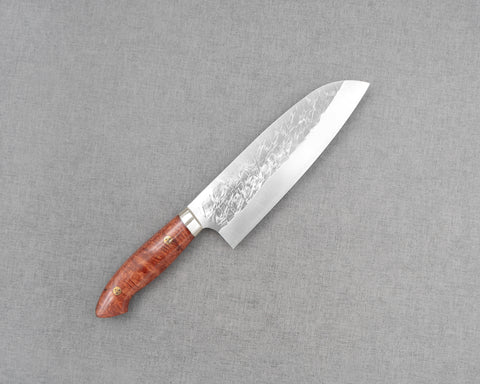
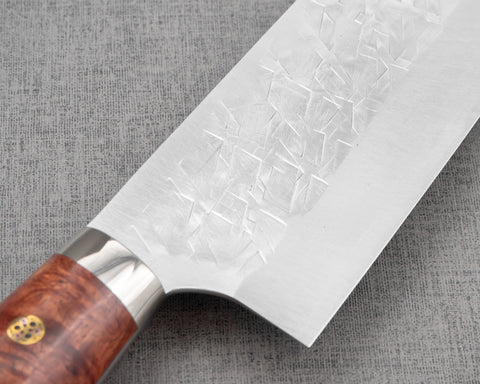
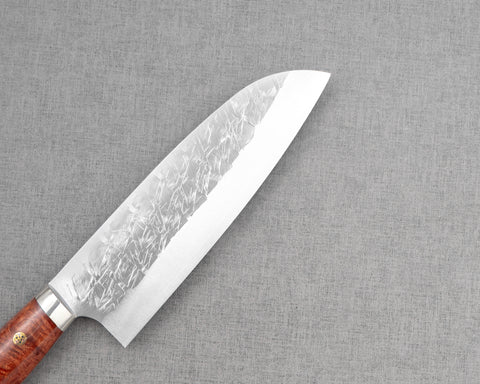
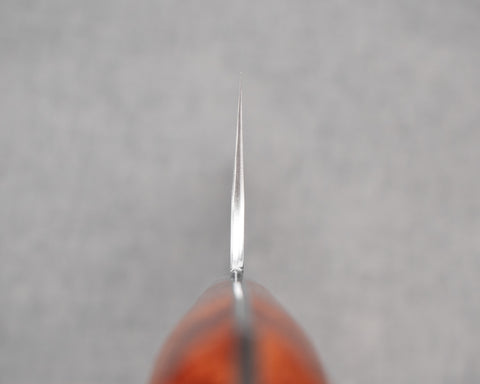
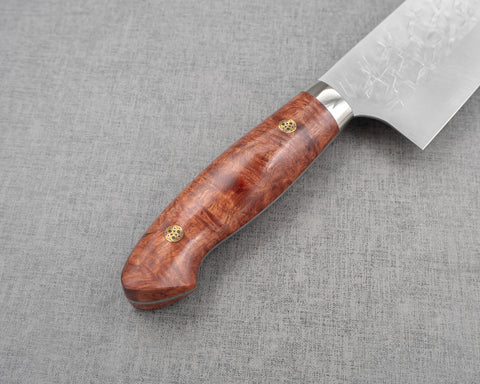
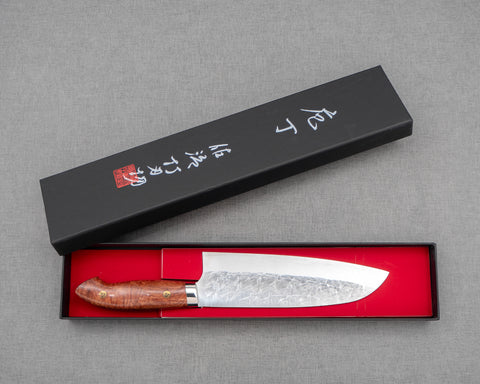
Takeshi Saji SRS13 Migaki Tsuchime 180mm Santoku with Karin Wood Handle
目前沒有提供取貨服務
This knife features a slightly rustic finish with a random rough spots on the spine. Handcrafted by Echizen master blacksmith Takeshi Saji, it uses SRS13 super steel as its core, heat-treated to 63 HRC. This steel is generally considered similar to R2/SG2 steel but with slightly higher toughness and easier sharpening. The blade showcases an unorthodox rhombus-grid tsuchime pattern. Its grind tapers beautifully from top to edge, ensuring optimal cutting geometry.
Spec:
- Origin (Made in): Echizen, Fukui Prefecture, Japan
- Brand: Takeshi Saji
- Craftsman: Takeshi Saji
- Knife Type: Santoku
- Blade
- Construction: San Mai
- Grind: Double-edged Blade (50/50 Grind)
- Hagane (Core Steel): SRS13
- Jigane (Cladding): Stainless Steel
- Hardness: 63 HRC
- Hand-forged, hand-grinded, hand-sharpened
- Blade Finishes:
- Tsuchime (Hammered)
- Blade Length: 180mm (7.1")
- Blade Height (at heel): 54mm
- Spine Thickness
- Above heel: 1.9mm
- Middle: 1.9mm
- Handle
- Shape: Western Shaped
- Material: Karin Wood
- Bolster: Stainless Steel
- Length: 118mm
- Overall Length: 309mm
- Weight: 212g (7.48oz)
- Engraved Mark: In Japanese Kanji "Saji Made" (佐治作)
About Takeshi Saji 佐治 武士
Master Saji is the third generation blacksmith of Takefu City, Fukui Prefecture, who has been certified as a traditional knife craftsman at the age of 44. Now in his 70s, with over 30 years of experience in making handcrafted knives, Master Saji makes breathtakingly beautiful Damascus knives, which often paired with unique custom handles such as handcrafted ironwood handles. Having become a legend in hunting knife making, Master Saji has a unique eye for fine finish, and he's also innovating constantly by bringing new looks to knives.
Care:
Wash and dry with a soft sponge, and safely store after use. Avoid cutting into bones, frozen foods, hard fruit pits.
Cutting Surface:
Recommended cutting surface: wood, rubberized boards and high-end composites, and quality plastics such as polyethylene make acceptable cutting surfaces, and will help protect and prolong knife’s edge. AVOID glass, metal, countertops, and other rigid, non-forgiving surfaces.
Sharpening:
We recommend sharpening all quality Japanese knives on whetstones, as we believe they yield the best results for your knives.
